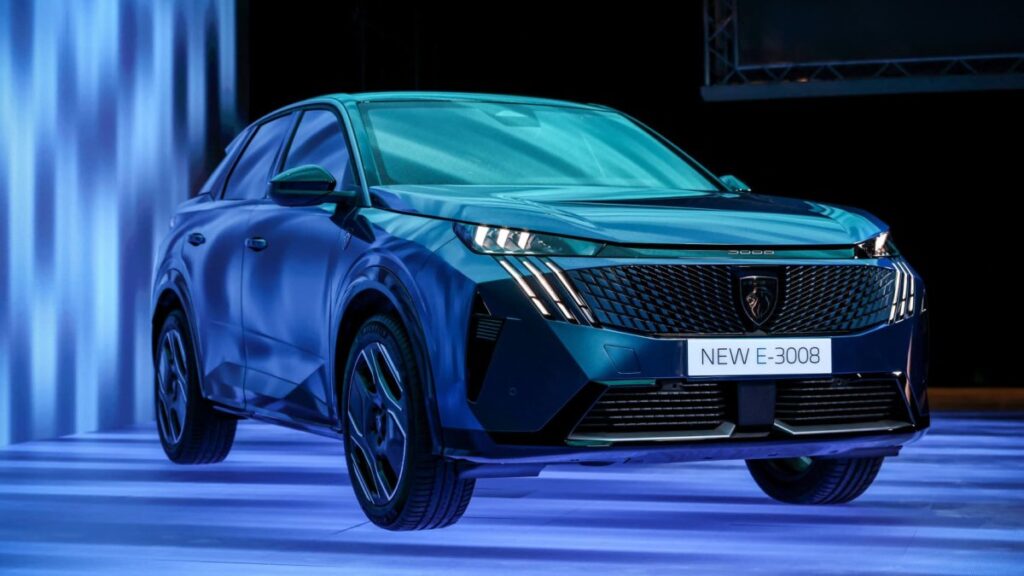- French car giant Peugeot told CNBC that it is partnering with German startup Vay to test the use of “teledriving” technology.
- Unlike autonomous cars, which can drive themselves without a human operating the vehicle, remote-driven cars are driven remotely by a human operator.
- Peugeot is considering equipping its E-3008 electric SUV and some electric vans with this technology.
PARIS, France — French auto giant Peugeot told CNBC this week that it is partnering with German mobility startup Vay to integrate so-called “teledriving” technology, an alternative to self-driving cars, into its vehicles.
The agreement will see the companies evaluate the use of Vay's remote driving technology in “last mile delivery” vans and light logistics vehicles focused on business-to-business (B2B) customers.
The idea is to replicate the path that delivery vehicles typically take from order fulfillment centers to homes and businesses, similar to the widely known model Amazon already offers, but this time only with remotely operated vehicles. Use the.
The first pilot tests of Vay's technology using Peugeot vehicles are scheduled to take place this year. Peugeot is considering equipping its E-3008 electric SUV and some electric vans with this technology.
Justin Spratt, Bay's chief business officer, told CNBC in emailed comments that the partnership took 18 months and selected Peugeot as the first OEM partner to integrate the teledriving technology. It added, “because of its innovative position and broad customer base.” . ”
Spratt said the Peugeot deal “demonstrates how we can streamline delivery operations by allowing vehicles to be delivered, redelivered and taken in for cleaning and charging on demand more cost-effectively.”
What is Teledriving?
A “remotely driven” vehicle is similar to a giant radio-controlled car, except that it is large enough for a person to ride in it.
Unlike self-driving cars, which can drive themselves without a human in control of the vehicle, tele-driving cars are driven remotely by a human operator using a live feed of the car's surrounding environment.
Teledrivers undergo several weeks of rigorous training and certification before being allowed to operate one of Vay's Teledrive stations.
Vay says its technology is particularly well-suited for short-distance travel, making it suitable not only for distribution centers but also for so-called last-mile deliveries. Last mile delivery refers to the last leg of your order before it reaches your home.
Peugeot is a French car brand owned by Stellantis, a company based in the Netherlands.
Stellantis, which also owns brands such as Chrysler, Dodge, Jeep, Citroen, and Maserati, was formed in 2021 through the merger of Fiat Chrysler and PSA Group.
Vay will be demonstrating its remote driving technology in collaboration with Peugeot at the Viva Technology industry trade show in Paris this week.
“We believe this will result in significant cost savings for all logistics companies, especially e-commerce delivery companies,” Spratt told CNBC. “By separating drivers from commercial vehicles at distribution centers, we can significantly reduce operating costs.”
He added that Vay is also exploring the use of remote driving technology to support last-mile deliveries via on-board lockers linked to customer-specific QR codes for pick-up.
Earlier this year, Vay announced the launch of commercial remote driving services in Las Vegas, Nevada. This allows people to order a car to their location and then drive themselves to their desired destination.
Once the user completes their trip, Vay's teledriver can remotely park the car or drive it to the base.
Vey is already conducting unmanned tests with remote-controlled drivers on public roads in Europe and the United States. The company is currently working to obtain full regulatory approval for the technology on both sides of the Atlantic.
Founded in 2018 by tech entrepreneur Thomas von der Ohe, Vay has raised over $110 million in funding from investors including Kinnevik, Coatue, Eurazeo, Aomico, La Famiglia and Creandum.
Von der Ohe previously served as a technology program manager at Zoox, a self-driving car startup that Amazon acquired for an undisclosed amount in 2020.
In particular, Vay says its technology is ultimately designed to support self-driving capabilities as it collects valuable data about the physical environment. The company says it has no plans to introduce self-driving products anytime soon, but sees remote driving as a “bridge” between manual and self-driving cars.


